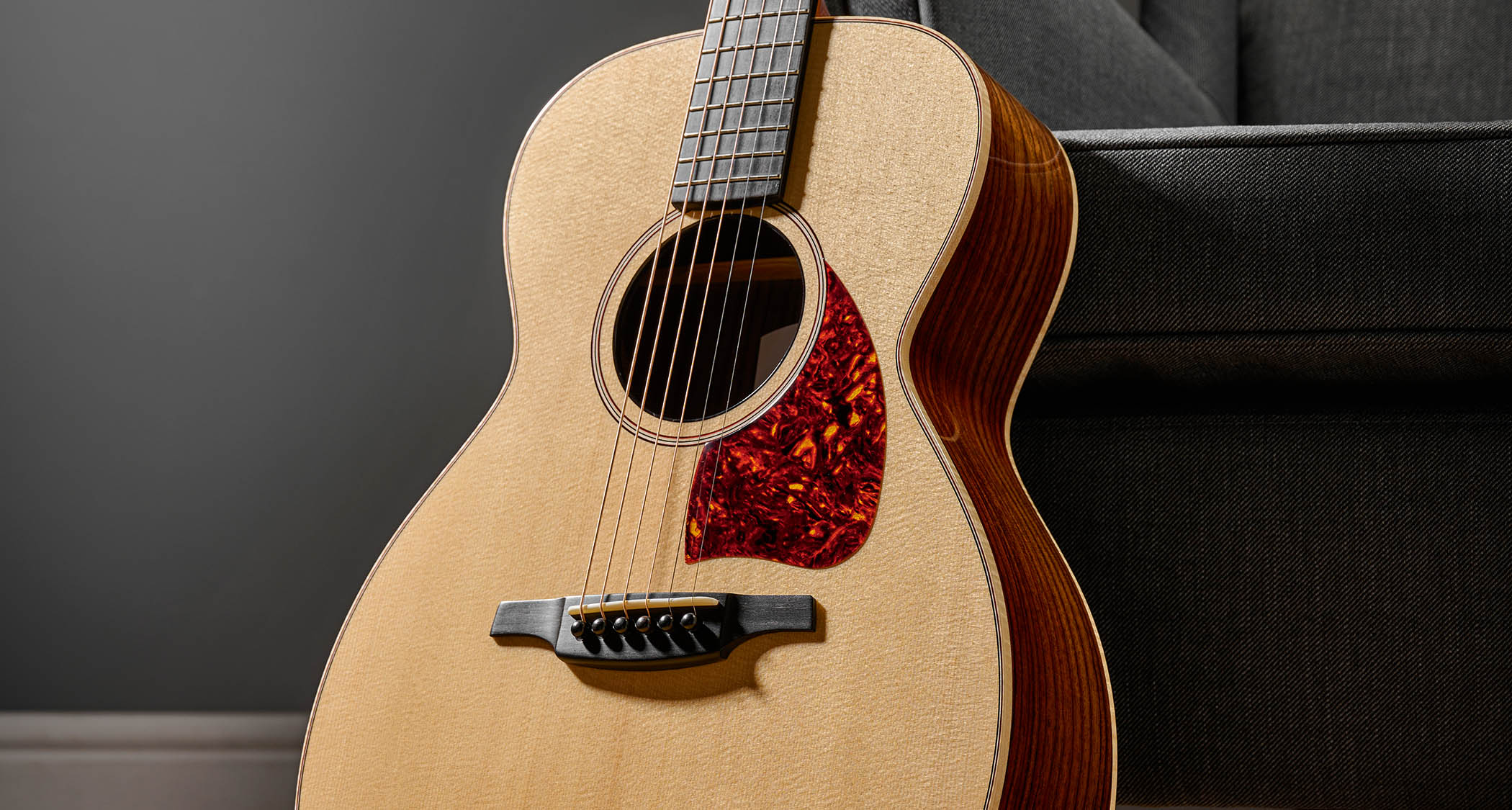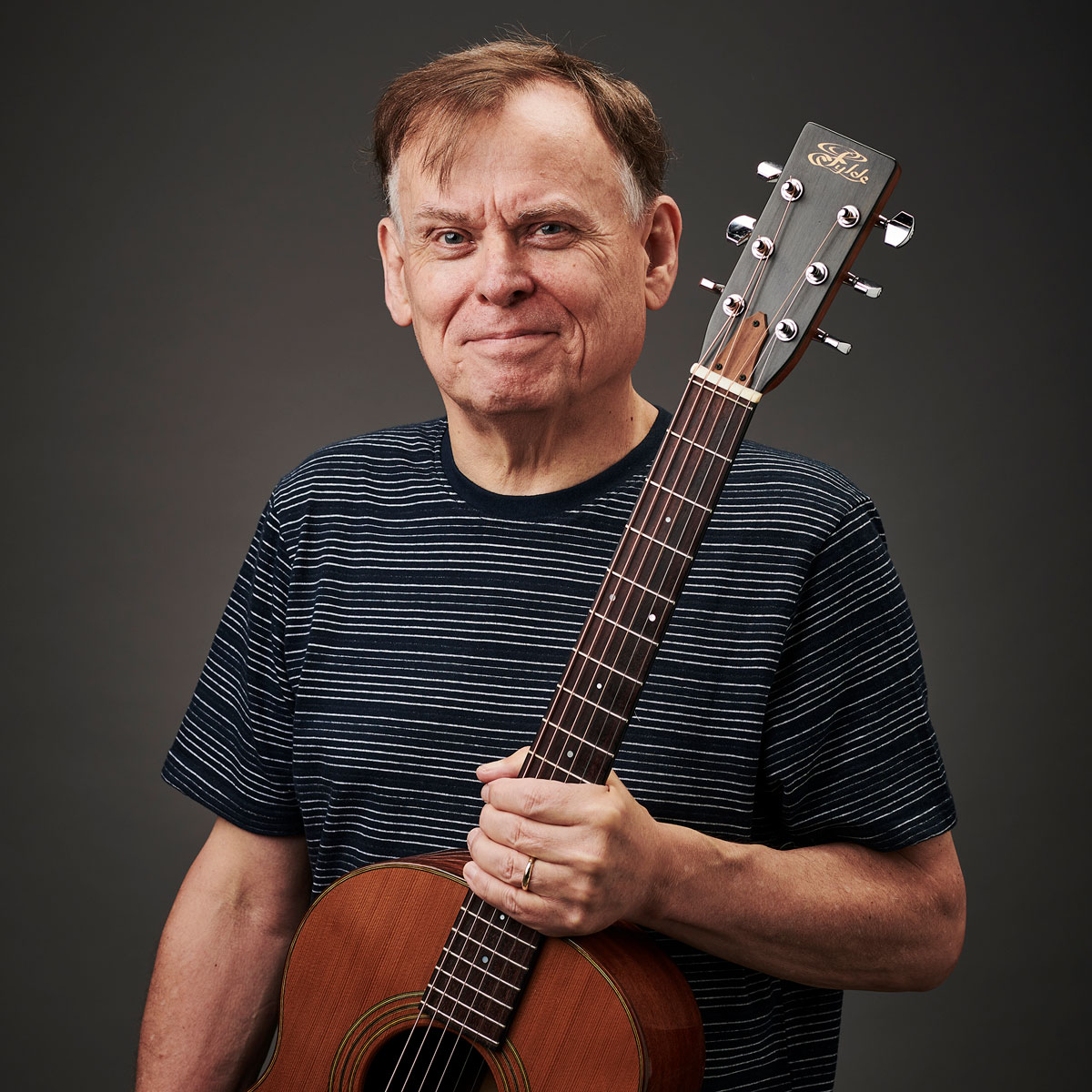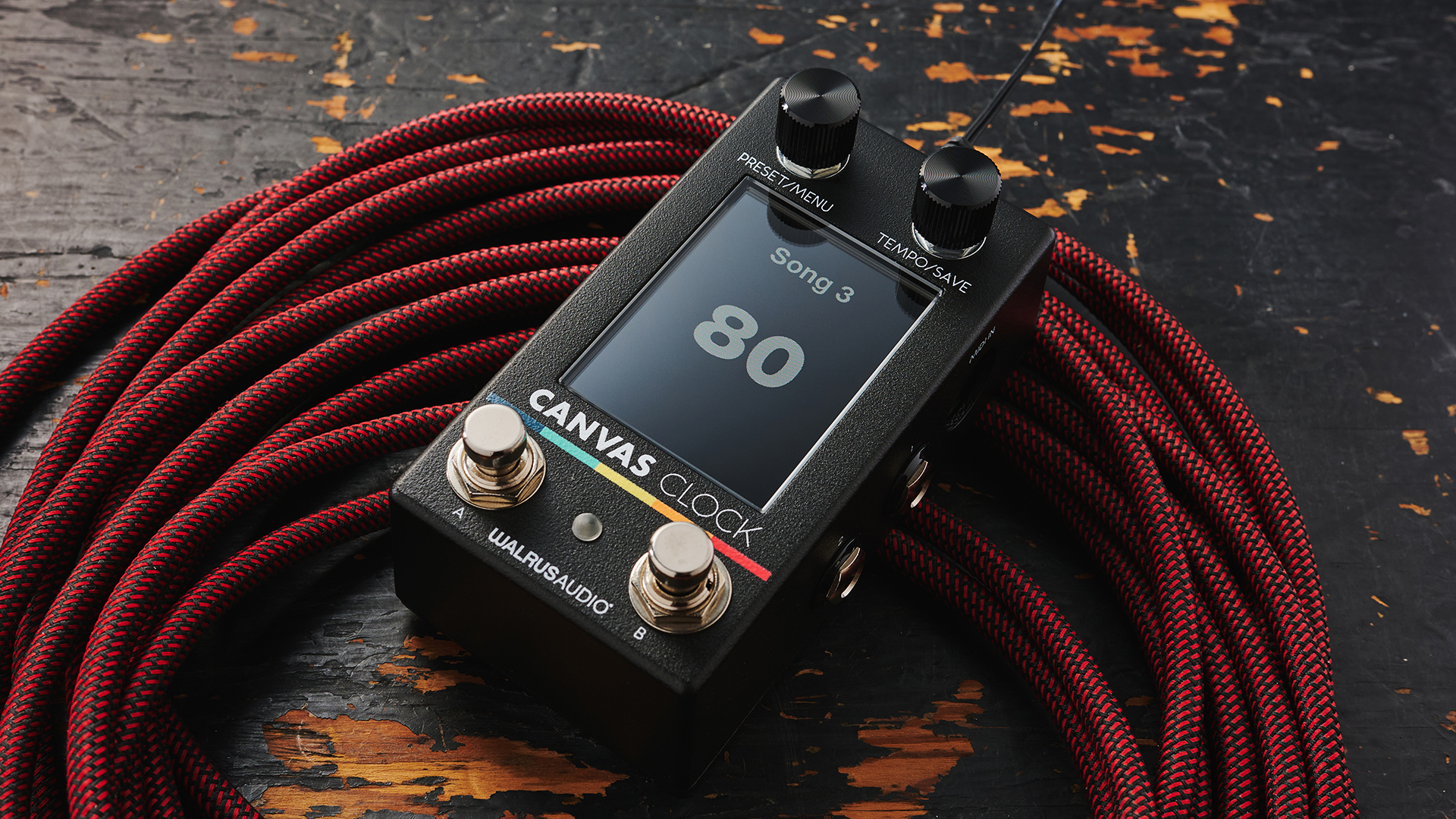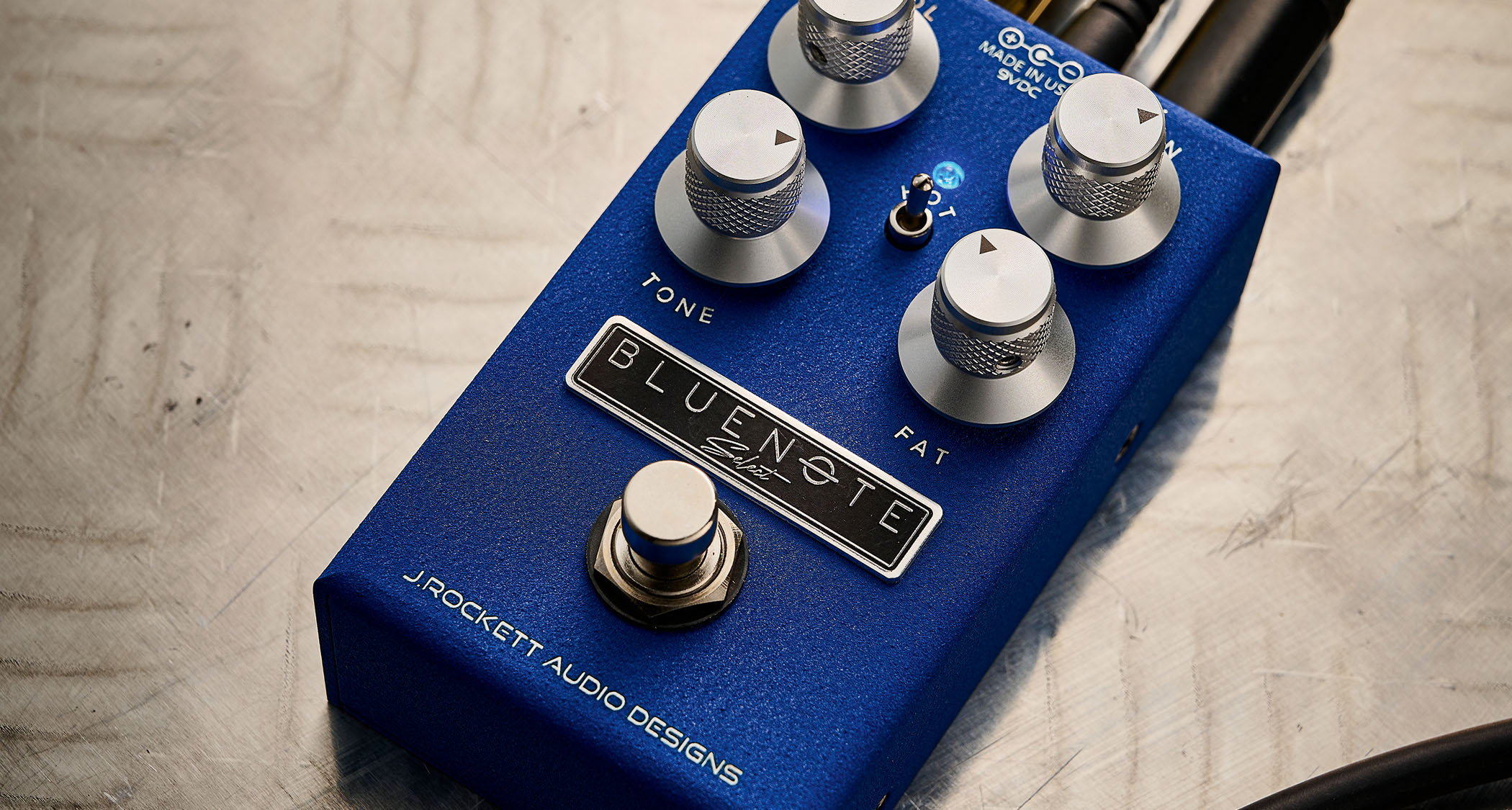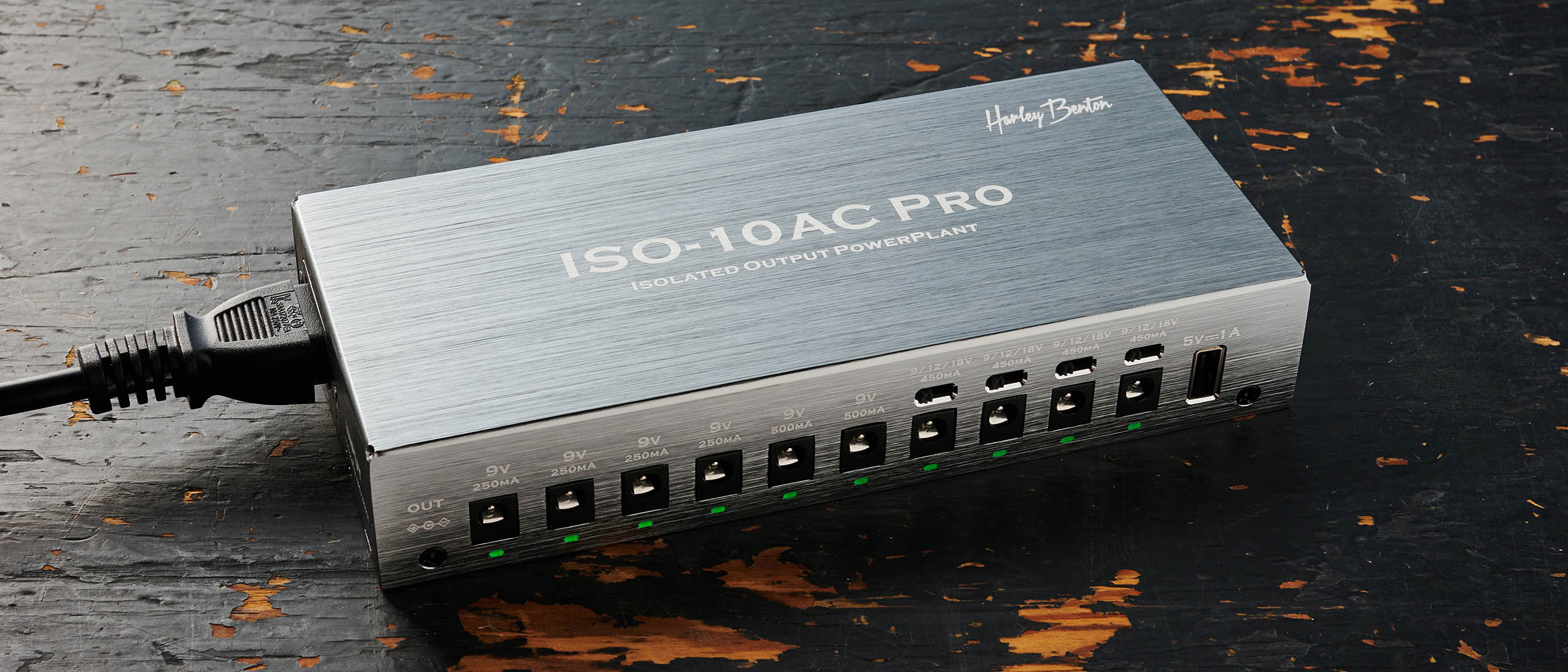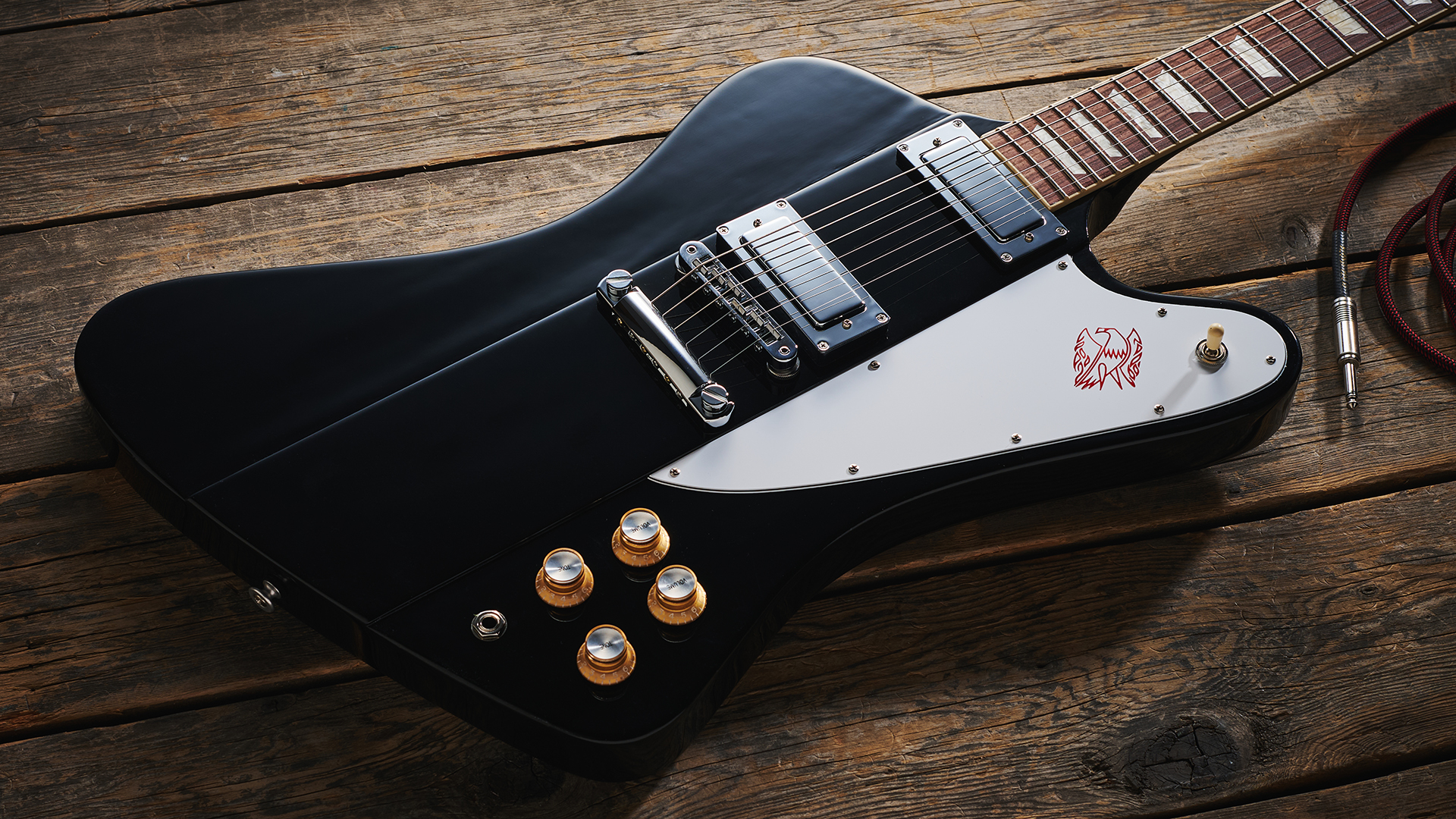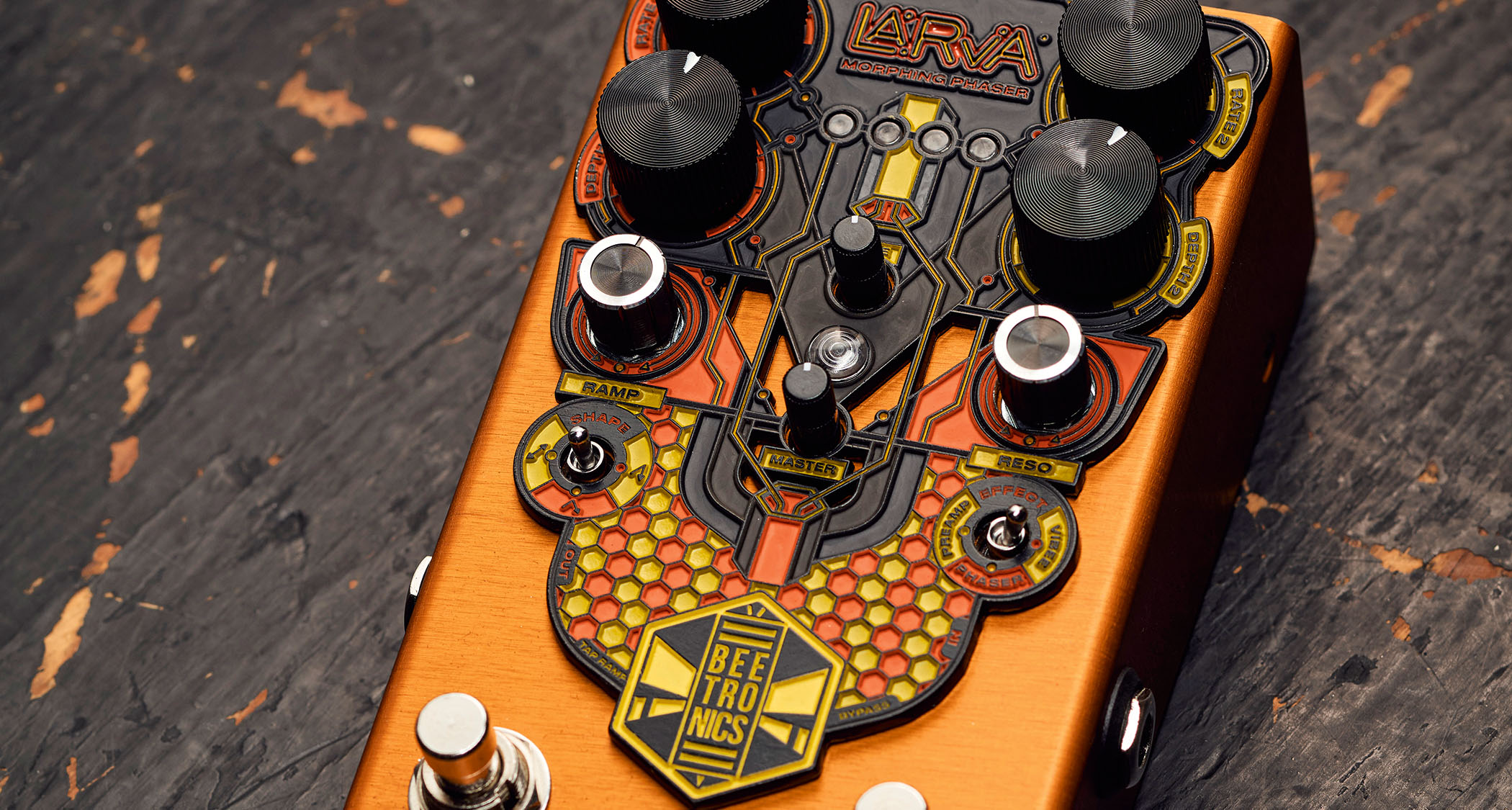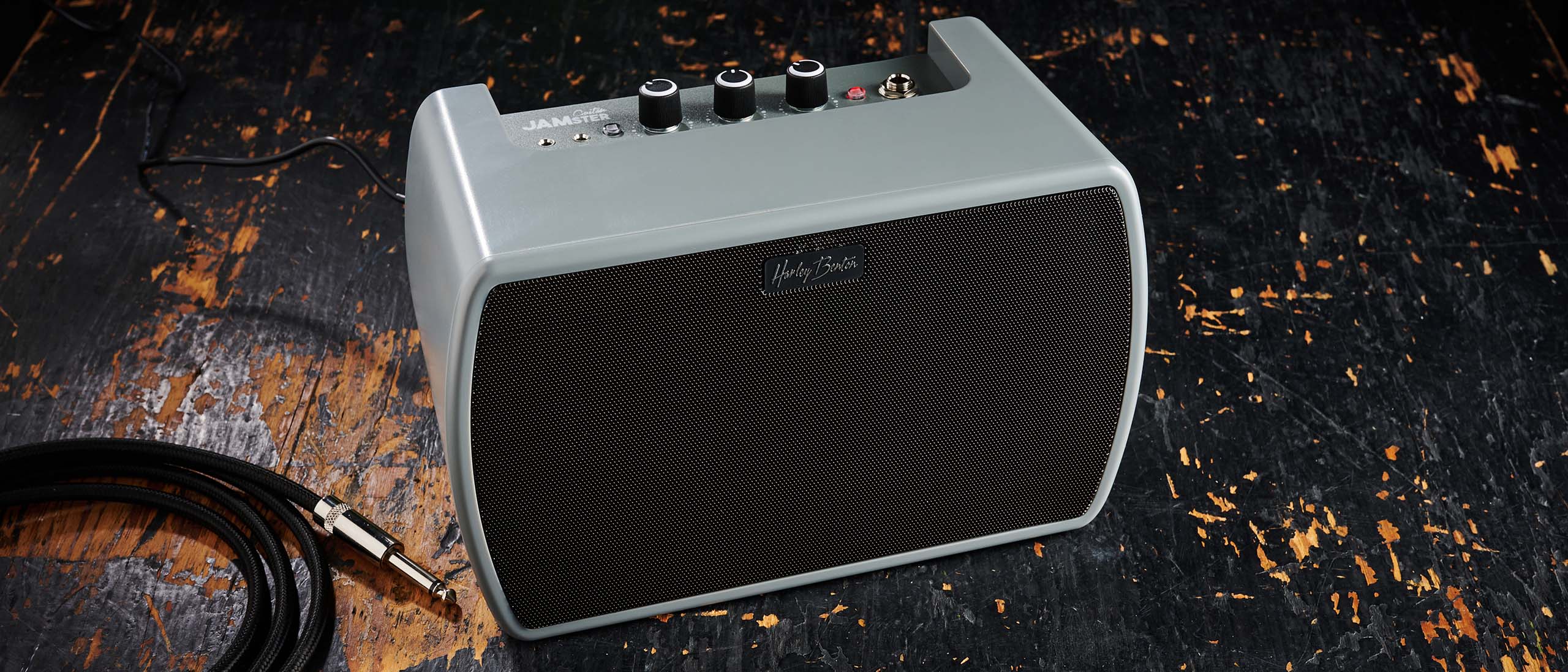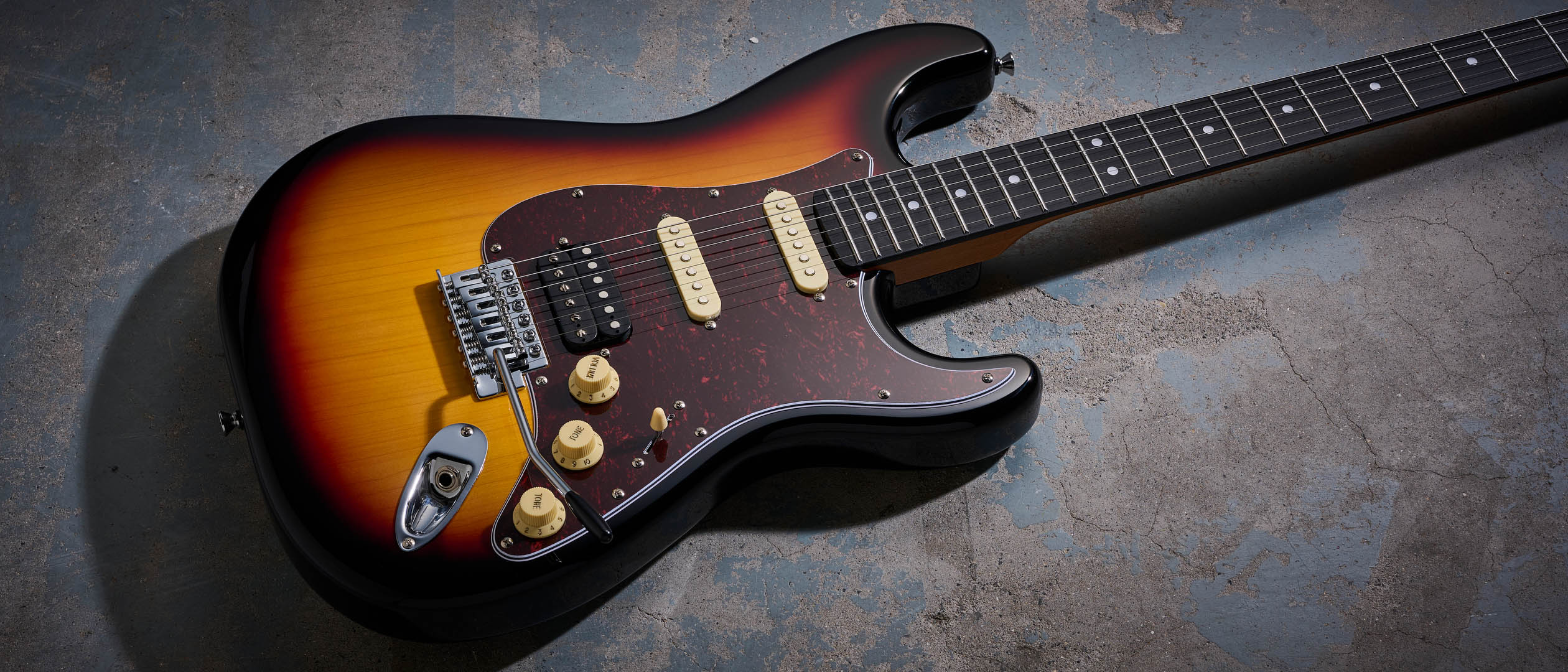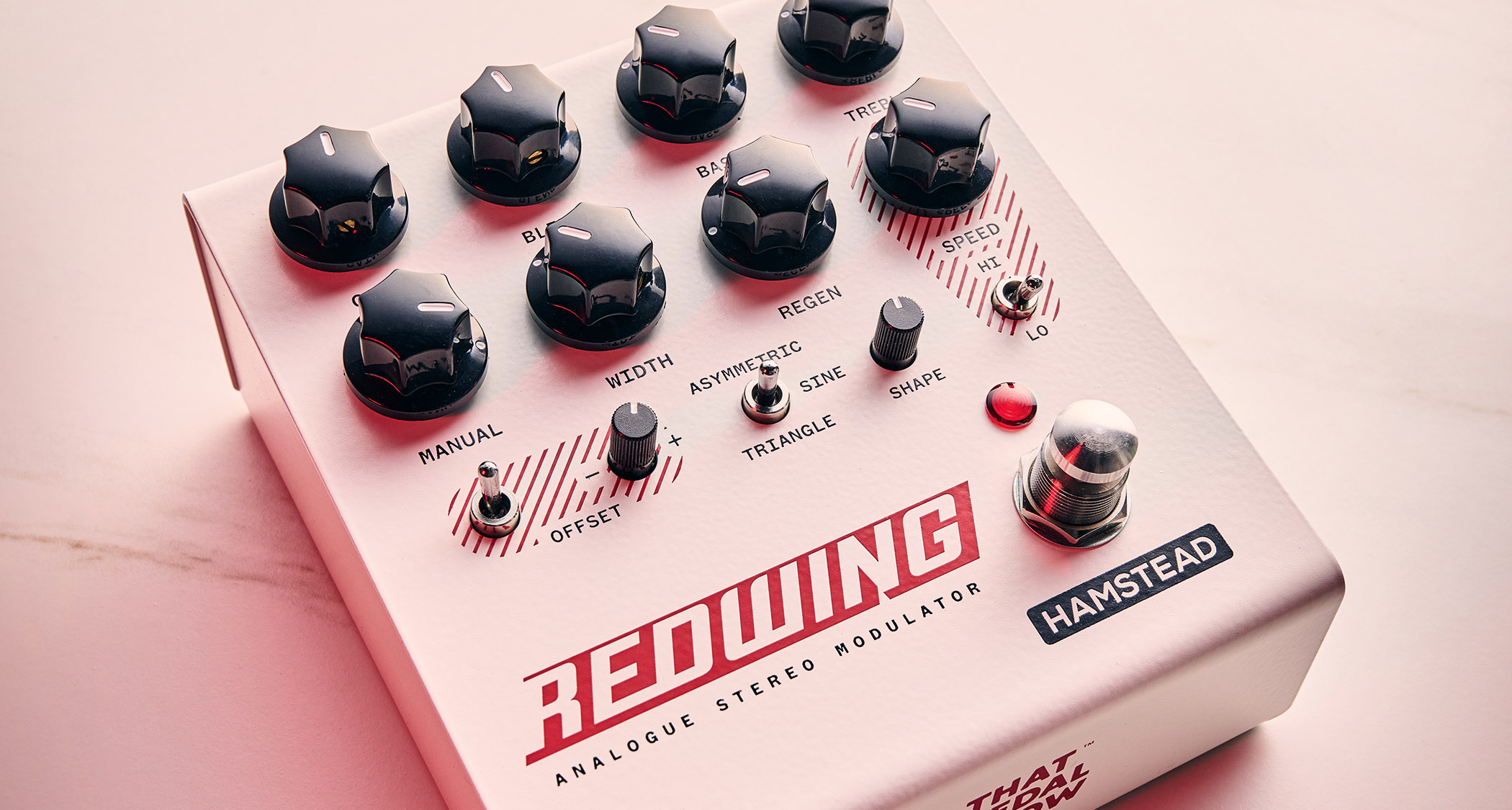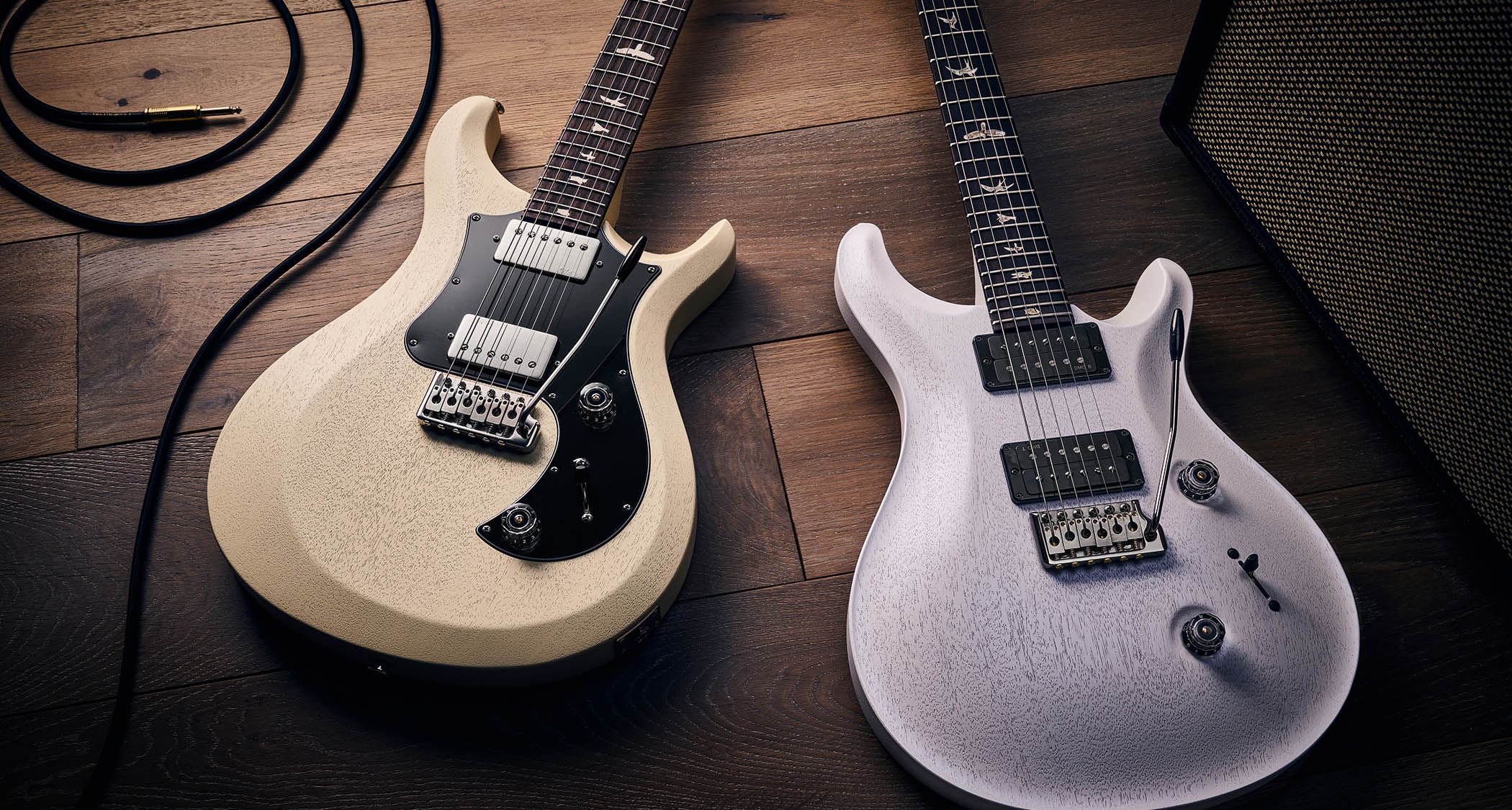Guitar World Verdict
There’s nothing basic here at all. This is a model that has the build quality and voice of a fully fledged professional instrument... if you can track one down to audition yourself, you may find that you fall under its spell as much as we did. It really is the case here that small is beautiful.
Pros
- +
Superbly built small-bodied guitar.
- +
Larger than life tonal personality.
- +
Generous C neck profile is very comfortable.
Cons
- -
Nope, we really can’t think of a thing!
You can trust Guitar World
If you’re at all unfamiliar with this range of acoustic guitars, Ciaran McNally works out of Craigavon, Armagh in Northern Ireland. He previously studied lutherie in both Northern Ireland and London, moving on to work for Lowden as a senior craftsman and Atkin Guitars in Canterbury as the company’s production manager.
Since that time he’s launched his own stable of handmade instruments that seek to “take the warmth and complexity of Celtic guitars and add some of the definition and fundamental qualities of American guitars”, concluding that he feels that the result is a more versatile instrument.
Ciaran’s Foundation range represents the most basic guitars he builds, the catalogue extending up to the more all-singing, all‑dancing bespoke builds. But while the Foundation guitars may inhabit the lower rungs of the McNally ladder, that’s not to say that corners have been cut or quality intentionally reduced in order to keep costs down.
On the contrary, even the briefest glimpse around this S-32’s real estate will confirm that it embodies a very high level of craft combined with some very fine‑looking timbers.
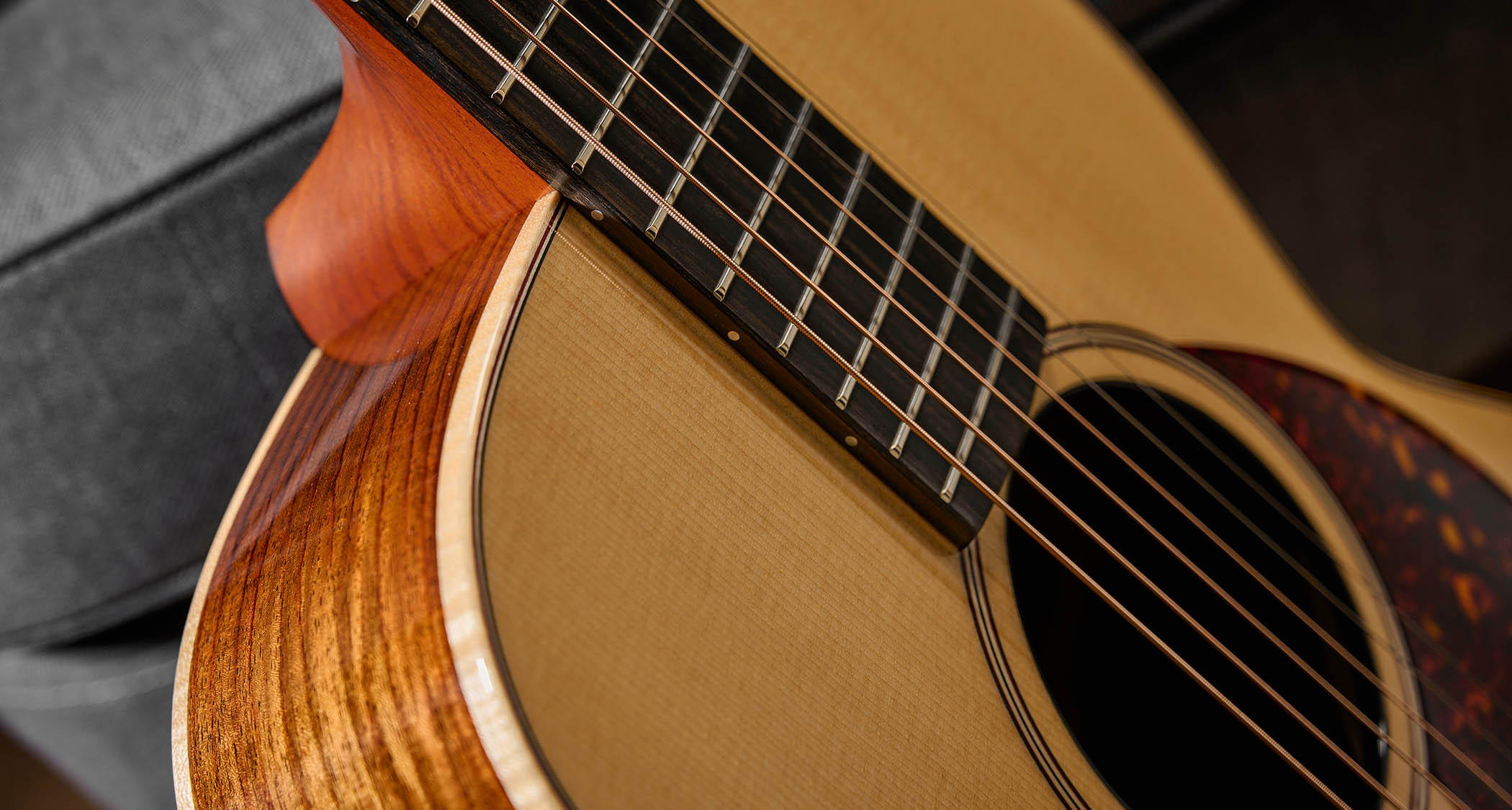
As for the rest of the McNally ground floor, the Foundation instruments are a quintet comprising a parlour (model P), the S (which stands for “small”), an OM, a dreadnought and a jumbo. Even here there is some flexibility in the range as you have a varied choice of tonewoods.
For tops, for example, you can choose between mahogany, spruce or cedar; for backs, rosewood, mahogany or walnut. You can also choose between a standard 43mm nut width or the slightly more fingerstyle-friendly 45mm, and your preference for one of three types of finish: gloss, matt or satin.
So it’s very obvious right from the start that these start-up instruments offer a good degree of choice alongside the guarantee of a quality build. To make things even easier to navigate, each of the Foundation Series is available at the price of just under £4k and so ordering your guitar couldn’t really be any more straightforward.
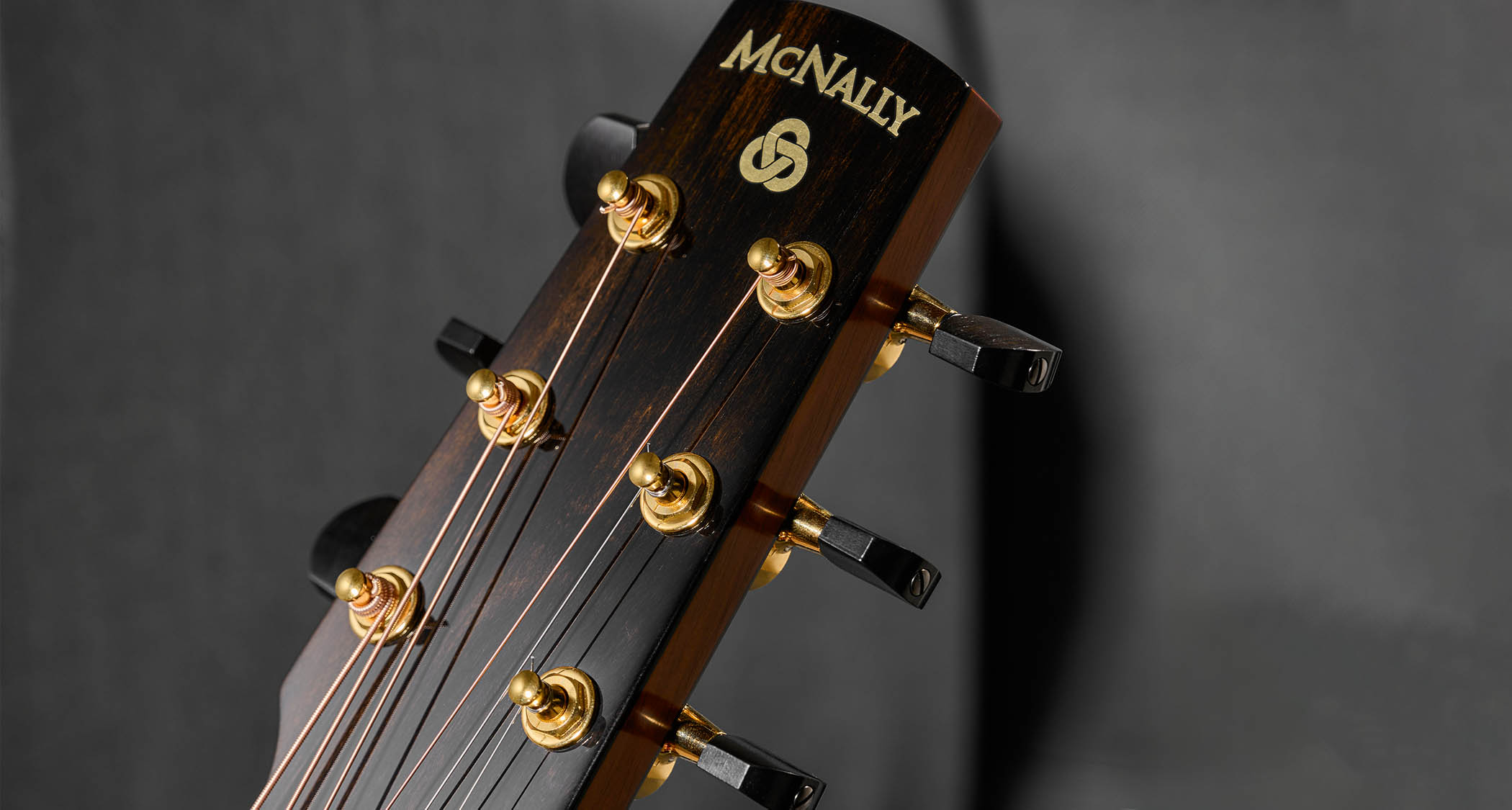
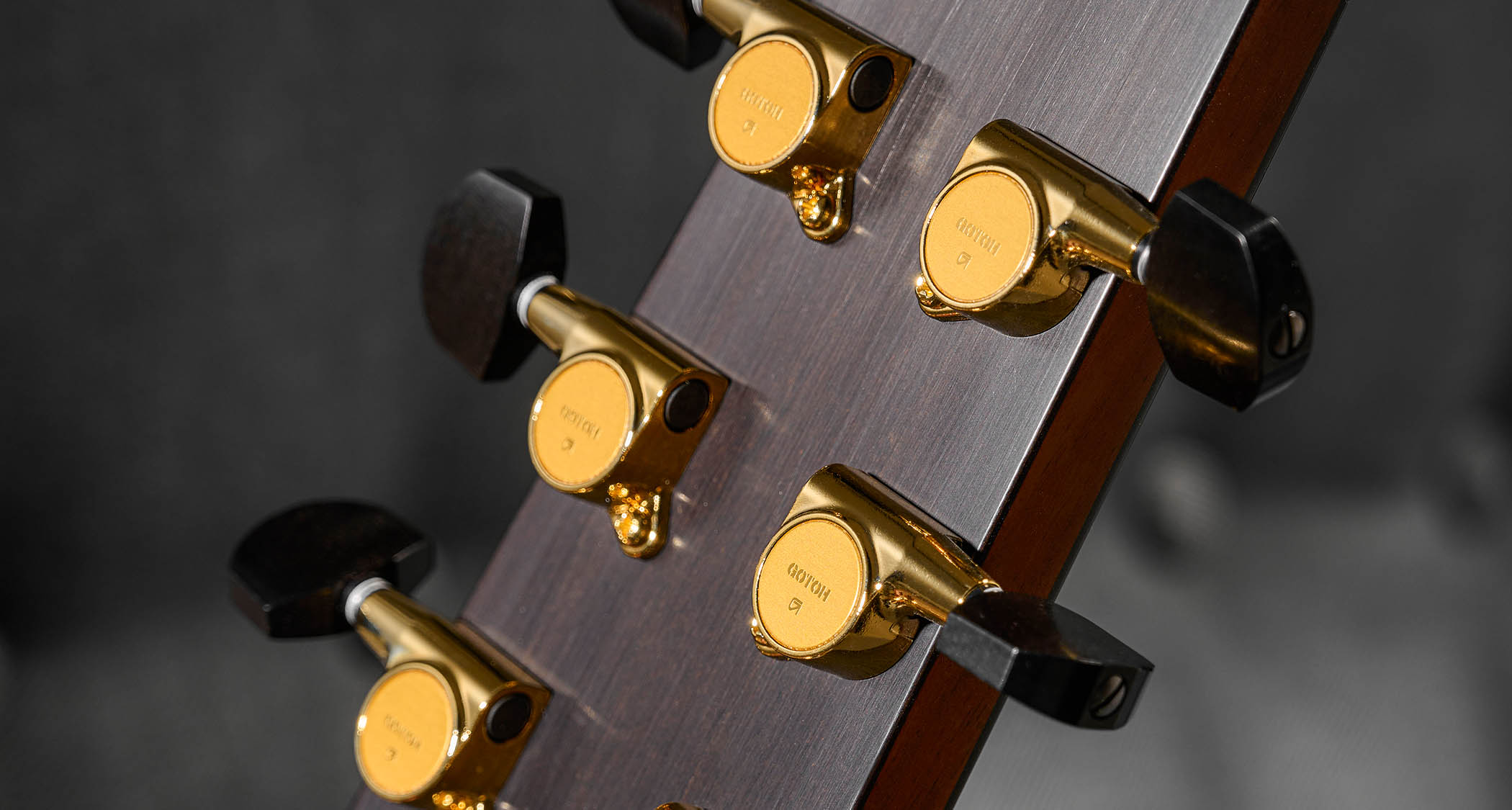
The model we have here falls under the ‘S’ category – ‘small’ being a very trim maximum body width of 360mm (14.2 inches) with a depth of 105mm (4.2 inches). Combined with its short 632mm (24.9-inch) scale length, it could even be considered petite, from a certain point of view.
As for the ‘32’ part, the ‘3’ tells us that it has an Indian rosewood back and sides and the ‘2’ confirms that it has a Sitka spruce top. It’s a classic combination of tonewoods that has featured on instruments going back to the very early years of steel-string design and has become known pretty much as an industry standard.
As we’ve already mentioned, the S-32’s top is Sitka spruce with a straight grain and some outstanding cross-patterning when the light catches it. Ornamentation is minimal, with a wood rosette and a mock tortoiseshell pickguard.
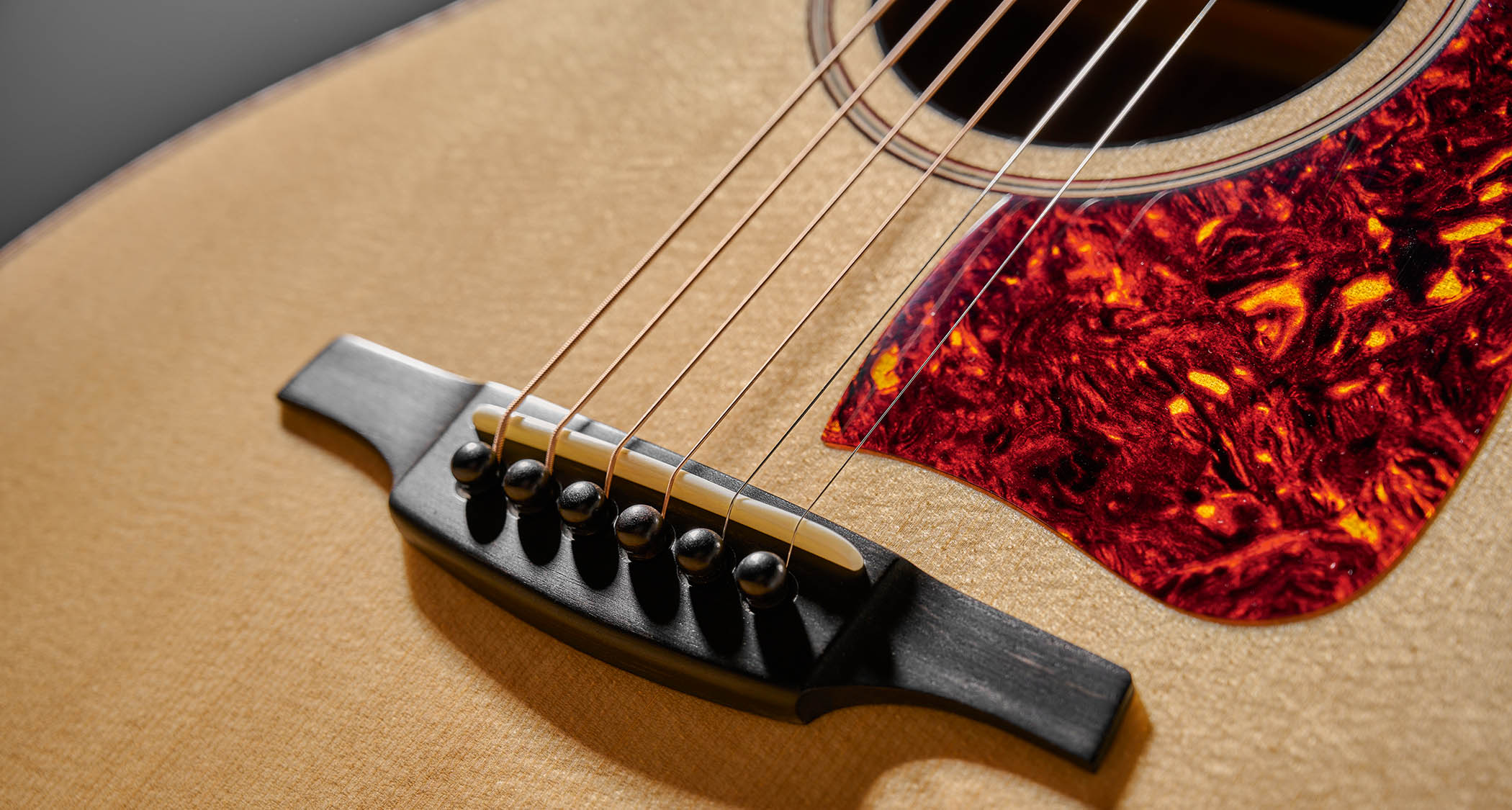
Back and sides are Indian rosewood, and once again the timber here looks absolutely top class, and the figured maple binding to the top and back keeps the simple understated but classy overall look. A quick peek inside reveals everything is shipshape there, too.
For the neck we have mahogany – with a smooth satin finish, as opposed to the rest of the body’s high gloss – and this has been finished to what you might call a generous C profile. It’s not too chunky but not too thin at the same time. The headstock has an ebony laminate front and back, set off with gold-coloured three-a-side Gotoh 381 tuners with ebony buttons.
And it’s ebony once again for the fingerboard, which maintains the unfussy look of the guitar as a whole by being devoid of position markers on the front. But never fear, they are present along the edge in the form of tiny abalone dots.
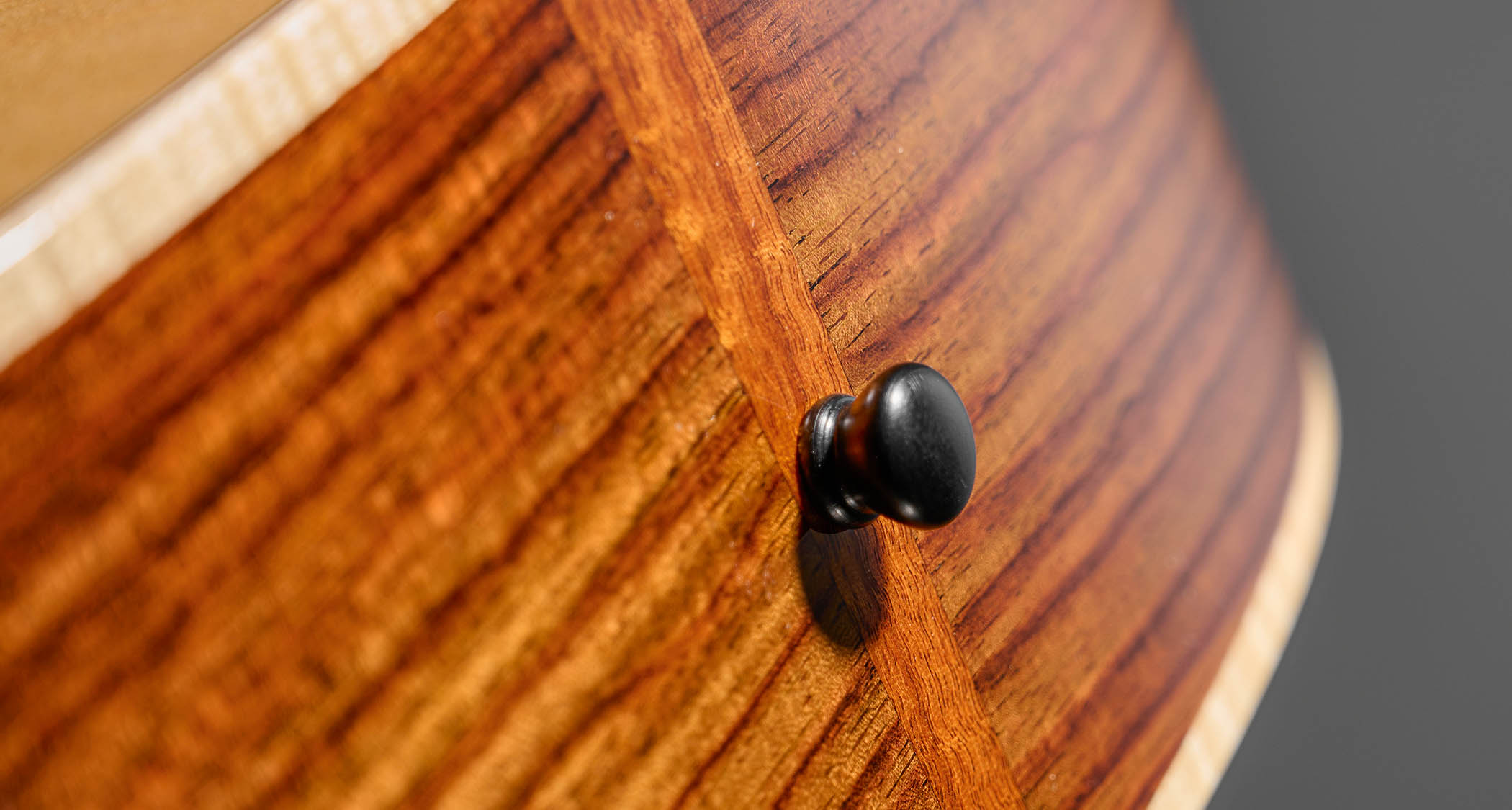
Rounding off the S-32’s fixtures and fittings we find a perfectly cut 45mm bone nut (as we’ve said, 43mm is an alternative) and at the other end of the string length there’s an ebony bridge, bone saddle and ebony bridge pins.
Everything here is in proportion and the guitar lives up to its ‘small’ – but perfectly formed – designation in the McNally basic line. The next thing is to see, then, how the instrument performs…
Feel & Sounds
The first thing you notice on picking up this S-32 is that it’s very light and its short scale makes it feel very compact and a perfect would-be companion for sofa-bound noodlings. That generous C neck profile sits well in the hand, and the satin finish here eases movement over the entire length of the neck.
All well and good, but the big surprise comes with the first chord – it sounds enormous! For a smaller-bodied guitar we wondered if there was some form of luthier’s dark art at work here, but Ciaran assured us otherwise.
“It’s probably slightly deeper than your typical small guitar,” he considers. “But it would be the same depth as a typical OM. So I’ve kind of shifted the depths of my guitars a bit so the OM that I do is deeper, but the S’s depth is what most people would do on an OM. So it’s probably very familiar in terms of depth but slightly larger for a small, short‑scale guitar.”
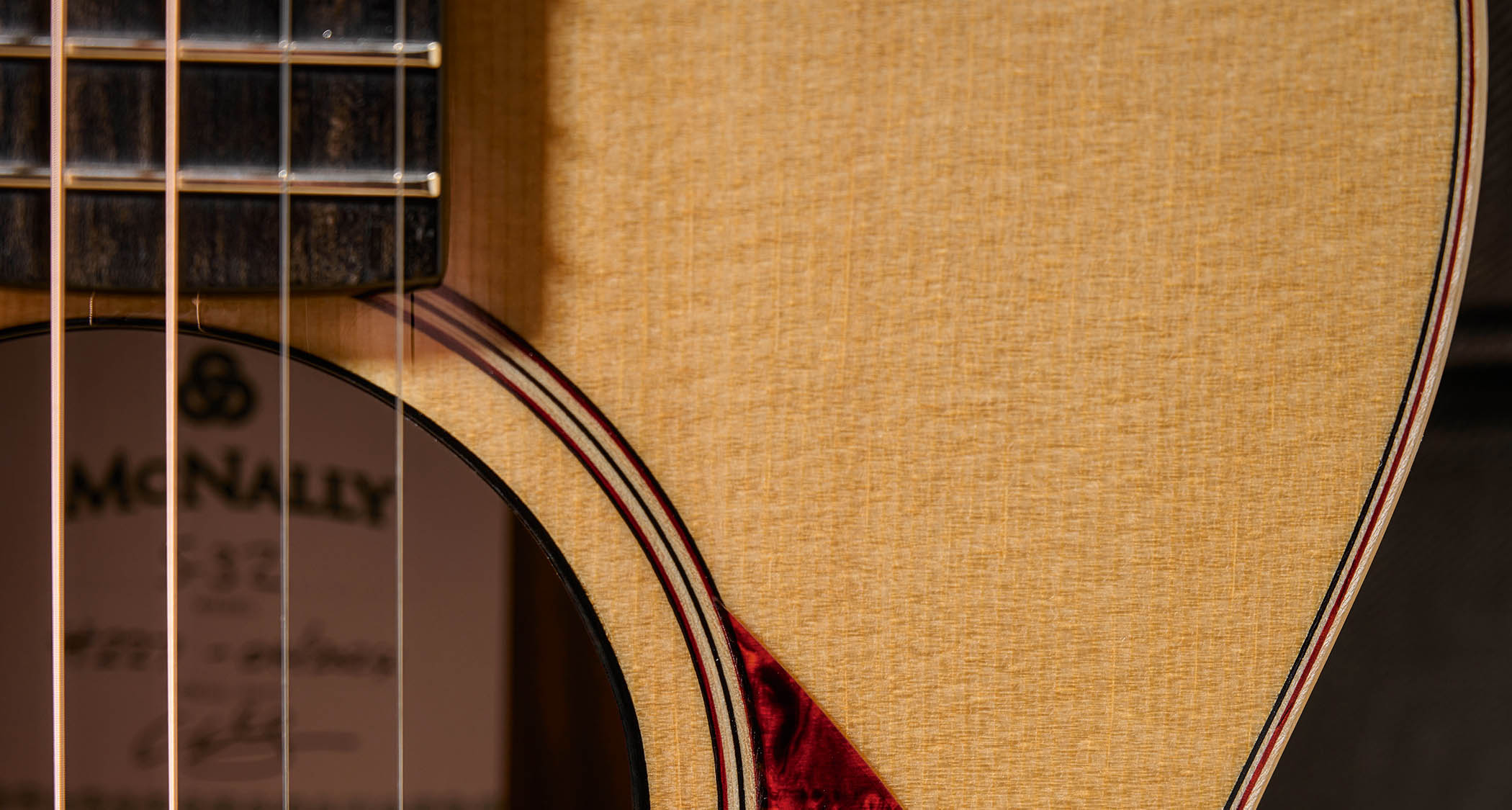
That would explain the extra resonance in the lower mid and bass frequency ranges, and quite probably the surprising amount of volume and projection that is evident, too. To illustrate further what we mean, Ciaran told us that he met a player from the US at a guitar show who told him that he was strictly a dreadnought player as he really liked to dig in when he played.
Ciaran is to be congratulated that he has succeeded in his mission to combine the best of Celtic guitars with the voice and personality of the leading American instruments
However, the S models that Ciaran had on display at the show threw the guy a curveball – he was amazed that he could get the same sort of response out of a small body as he would expect from a dread.
Speaking of dynamic range, we found that the S-32 responded to everything from very gentle strumming to vigorous flailing, which is an added bonus and may well change a few more minds about the virtues of playing smaller-bodied guitars.
This depth and sheer musicality extends to single notes as well, nudging the S-32 over the all-rounder line nicely. Ciaran is to be congratulated that he has succeeded in his mission to combine the best of Celtic guitars with the voice and personality of the leading American instruments.
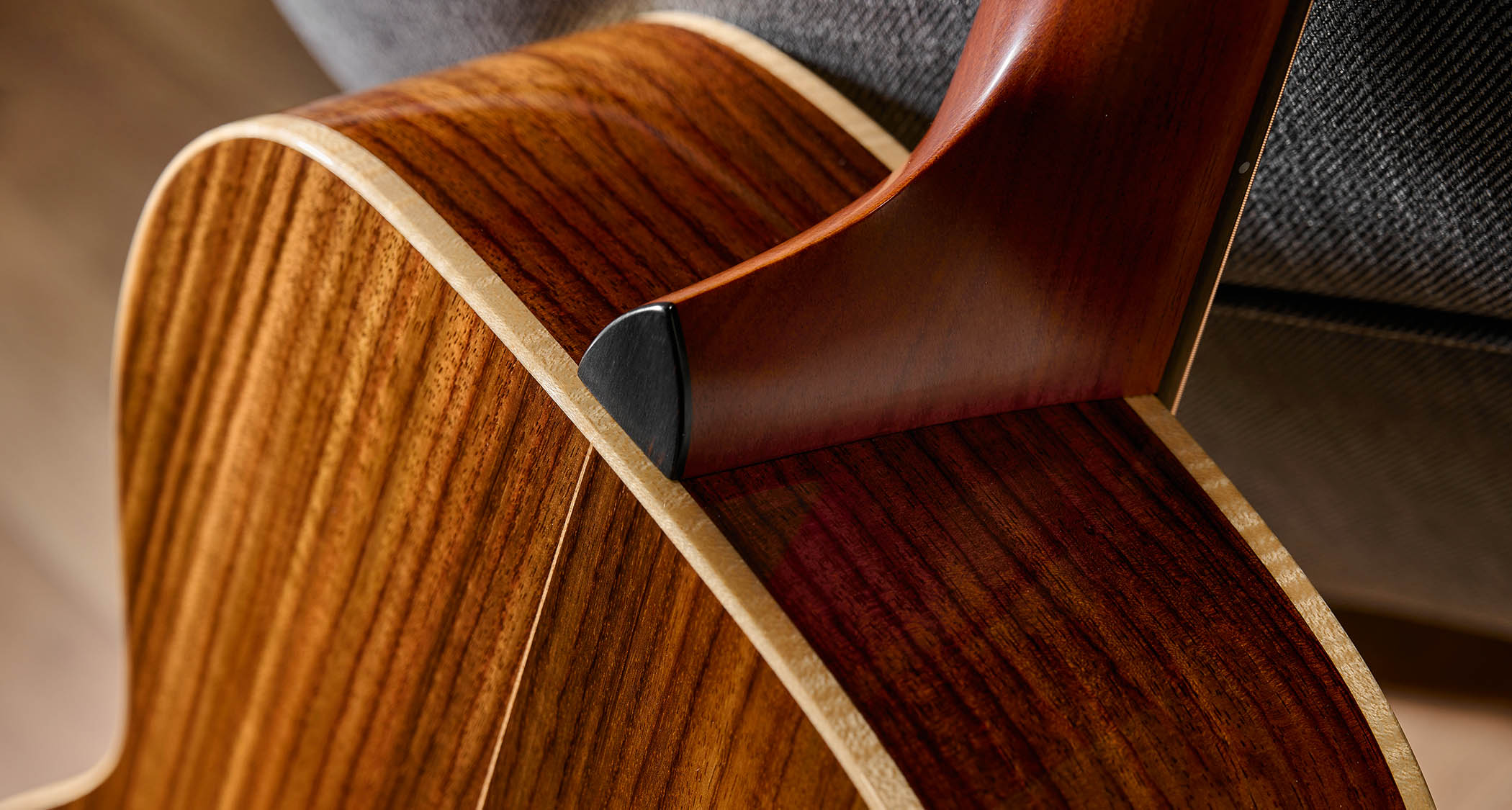
Verdict
Needless to say, we enjoyed our time with the McNally S-32 enormously. It’s a very player-friendly instrument that has a multitude of tricks up its sleeve, tonally speaking.
There’s no pickup fitted to this particular guitar, although Ciaran tells us that he will fit one as an extra, preferring the LR Baggs Anthem because it’s non-invasive from the point of view that it requires no extra holes cut into the guitar’s body. It would be interesting to hear what it’s like as a stage companion as it really does tick practically all the boxes acoustically.
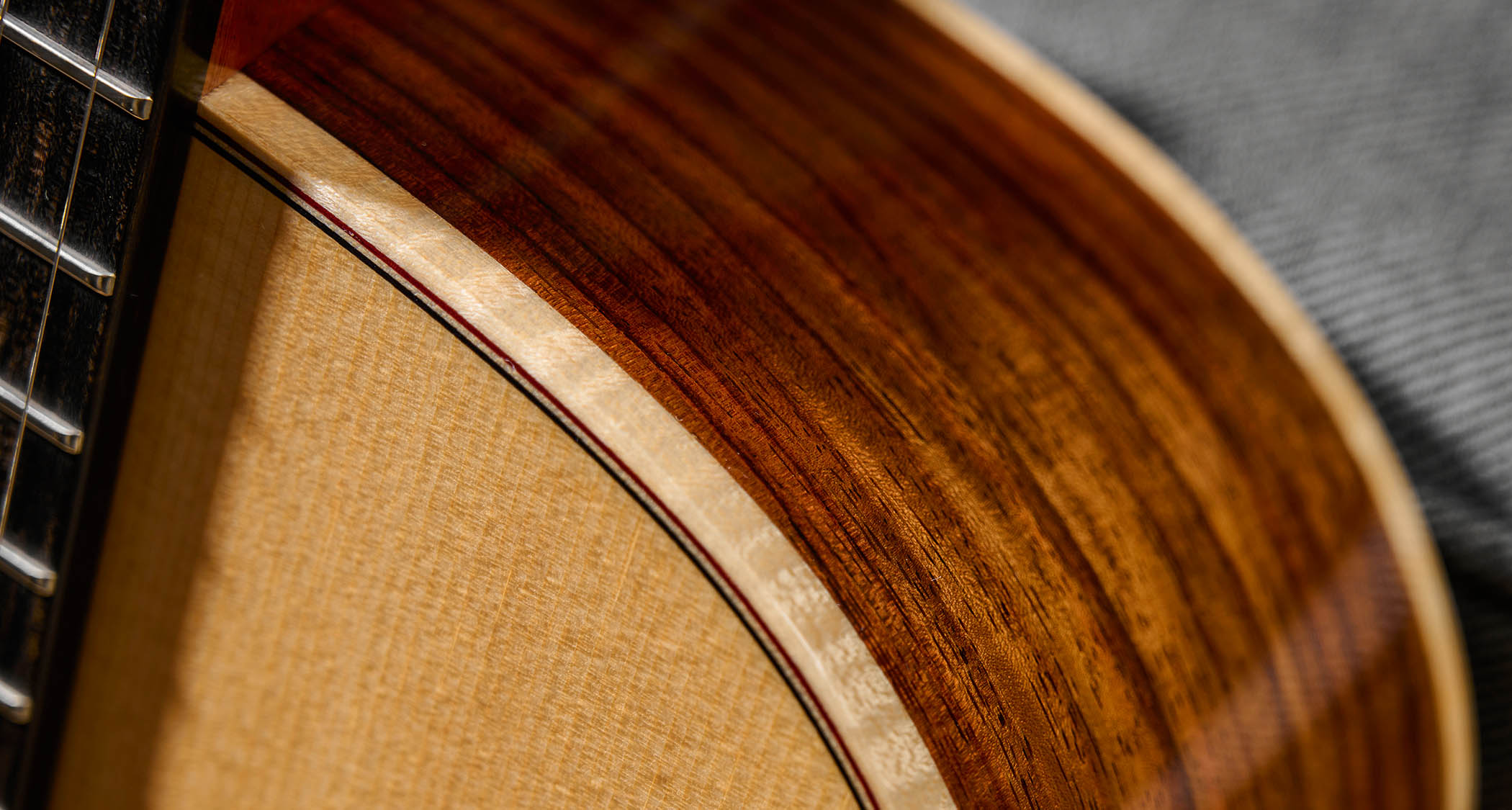
We have to say that despite its apparent position in the McNally pecking order as one of the littlest in the pack and an entry-level model to boot, there’s nothing basic here at all. This is a model that has the build quality and voice of a fully fledged professional instrument.
It’s not often the case that lone builders supply models to dealers, but McNally does. So if you can track one down to audition yourself, you may find that you fall under its spell as much as we did. It really is the case here that small is beautiful.
Specs
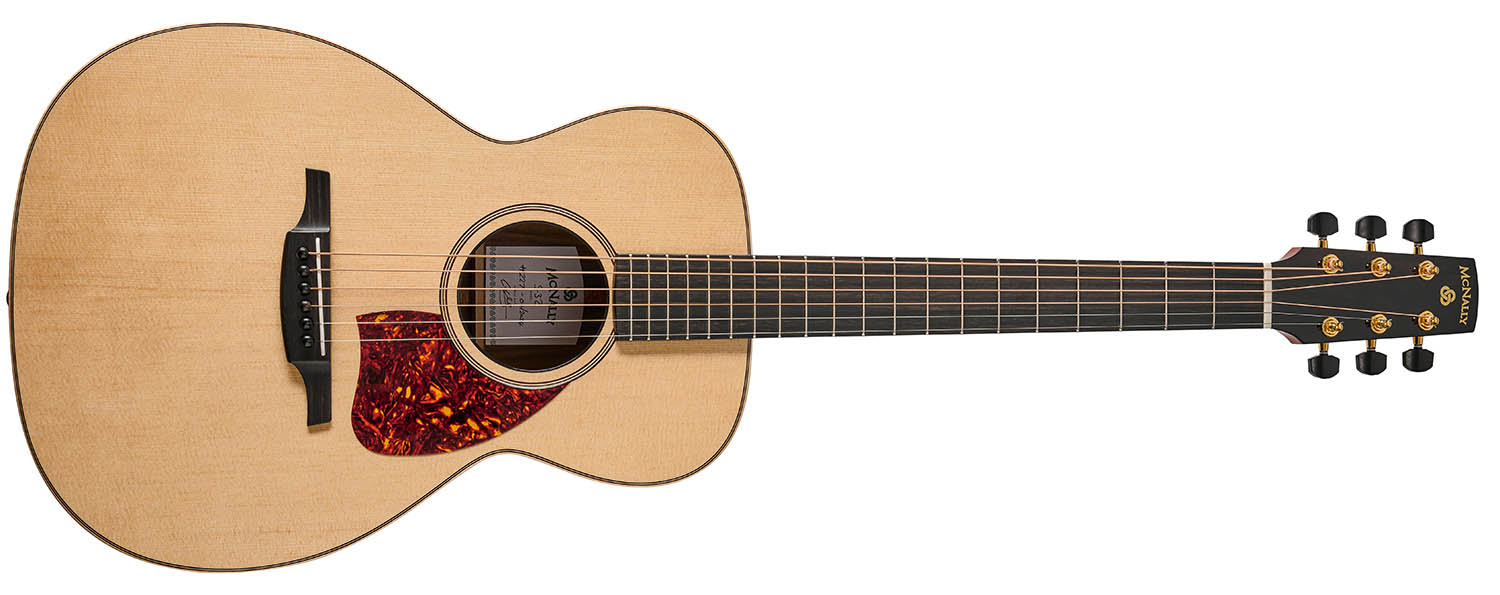
- PRICE: £3,999 (inc case)
- ORIGIN: Northern Ireland
- TYPE: Folk-size acoustic
- TOP: Sitka spruce
- BACK/SIDES: Indian rosewood
- MAX RIM DEPTH: 105mm
- MAX BODY DEPTH: 360mm
- NECK: Mahogany
- SCALE LENGTH: 632mm (24.9”)
- TUNERS: Gotoh 381 with ebony buttons
- NUT/WIDTH: Bone/45mm
- FINGERBOARD: Ebony
- FRETS: 20
- BRIDGE/SPACING: Ebony/58mm
- ELECTRICS: Not here, but offered as an optional extra – see website for details
- WEIGHT (kg/lb): 1.53/3.38
- OPTIONS: The Foundation Series offers a choice of bodywood combinations: mahogany, walnut or rosewood backs with cedar, Sitka spruce or mahogany tops. 43mm or 45mm nut width and finish options included in the base price
- RANGE OPTIONS: The Foundation instruments include five body shapes: jumbo, dreadnought, OM, small and parlour with the wood combinations mentioned above, all at the same price of £3,999. Bespoke builds via special order – see website for details
- LEFT-HANDERS: Yes, no extra charge
- FINISH: Natural gloss AC lacquer to body with satin neck
- CONTACT: McNally Guitars
With over 30 years’ experience writing for guitar magazines, including at one time occupying the role of editor for Guitarist and Guitar Techniques, David is also the best-selling author of a number of guitar books for Sanctuary Publishing, Music Sales, Mel Bay and Hal Leonard. As a player he has performed with blues sax legend Dick Heckstall-Smith, played rock ’n’ roll in Marty Wilde’s band, duetted with Martin Taylor and taken part in charity gigs backing Gary Moore, Bernie Marsden and Robbie McIntosh, among others. An avid composer of acoustic guitar instrumentals, he has released two acclaimed albums, Nocturnal and Arboretum.
“I heard the Money solo and thought, ‘This is amazing!’ So I sent David a telegram saying, ‘Remember me? I'm in a band now called Roxy Music’”: Phil Manzanera on his friendship with David Gilmour, and the key to the Pink Floyd man's unmistakable tone
“It’s really quite genius, but also hard to learn – it sounds insane, but sometimes the easiest songs still get me nervous”: Kiki Wong reveals the Smashing Pumpkins song she had the most trouble with
That time Stevie Wonder jammed with Stevie Ray Vaughan... and played SRV's number one Strat
